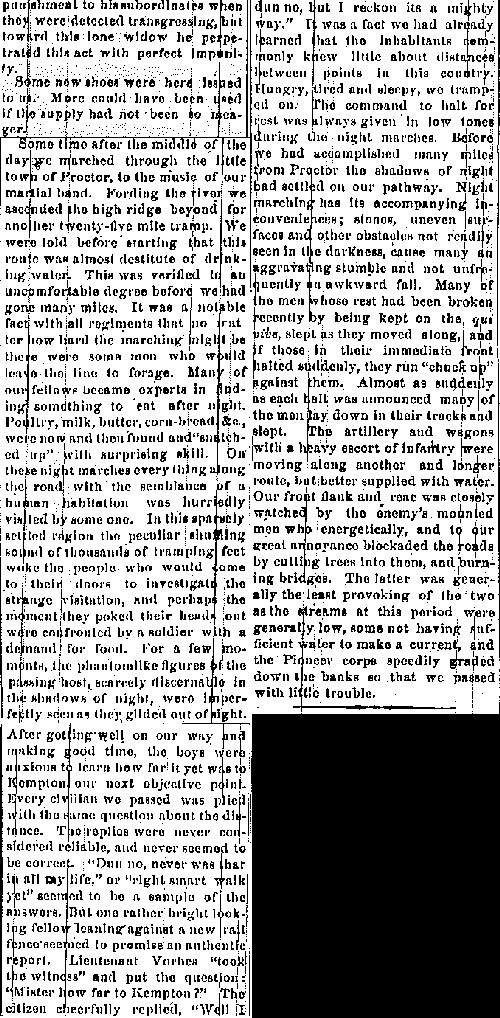| Camp & Field Page 38B | Camp & Field Index Page | 16th OVI Home Page | Camp & Field Page 38D |
The Camp & FieldArticles by Theodore Wolbach |
 Cpl. Theodore D. Wolbach |
The following image is taken from a book titled "Mortality and Statistics of the Census of 1850" in which it is believed retired Captain Rezin H. Vorhes, Company H, pasted over the pages a series of articles written by Cpl. Theodore D. Wolbach, Company E, titled "Camp and Field" and published, by chapter, in the Holmes County (Ohio) Republican newspaper from February 24, 1881 to August 17, 1882. The articles tell the story, in great detail and color, of the 16th OVI, from the inception of the 3-year regiment in October, 1861, through all its camps, battles and marches until it was disbanded on October 31, 1864. The articles pasted in the Vorhes book cover the first 35 chapters, published through October 20, 1881. All the remaining chapters were recently found in a Holmes County library by researcher Rob Garber who obtained copies, performed the transcriptions and provided to this website and which are also presented here, thus providing the complete work by Theodore Wolbach.
Throughout these articles click on the underlined white text for additional details.
The webauthor thanks 16th Ohio descendant Rob Garber for his excellent research on the Camp And Field articles and for performing the tedious digital transcription of those articles found on each page. The transcriptions were made to reflect the original articles verbatim, misspellings and all. Rob is the 3rd great nephew of Capt. William Buchanan, Company F, 16th Ohio, who served in the 90-day regiment as a private, re-enlisting in the three year regiment, and eventually making the rank of Captain of Company F. Thanks Rob!
Page 38C - Chapter 22 - September, 1862
 |
punishment to his subordinates when they were detected transgressing, but toward this lone widow he perpetrated this act with perfect impunity. Some new shoes were here issued to us. More could have been used if the supply had not been so meager. Some time after the middle of the day we marched through the little town of Proctor, to the music of our martial band. Fording the river we ascended the high ridge beyond for another twenty-five mile tramp. We were told before starting that this route was almost destitute of drinking water. This was verified to an uncomfortable degree before we had gone many miles. It was a notable fact with all regiments that no matter how hard the marching might be there were some men who would leave the line to forage. Many of our fellows became experts in finding something to eat after night. Poultry, milk, butter, corn-bread, &c., were now and then found and |
|
| Camp & Field Page 38B | Camp & Field Index Page | 16th OVI Home Page | Camp & Field Page 38D |